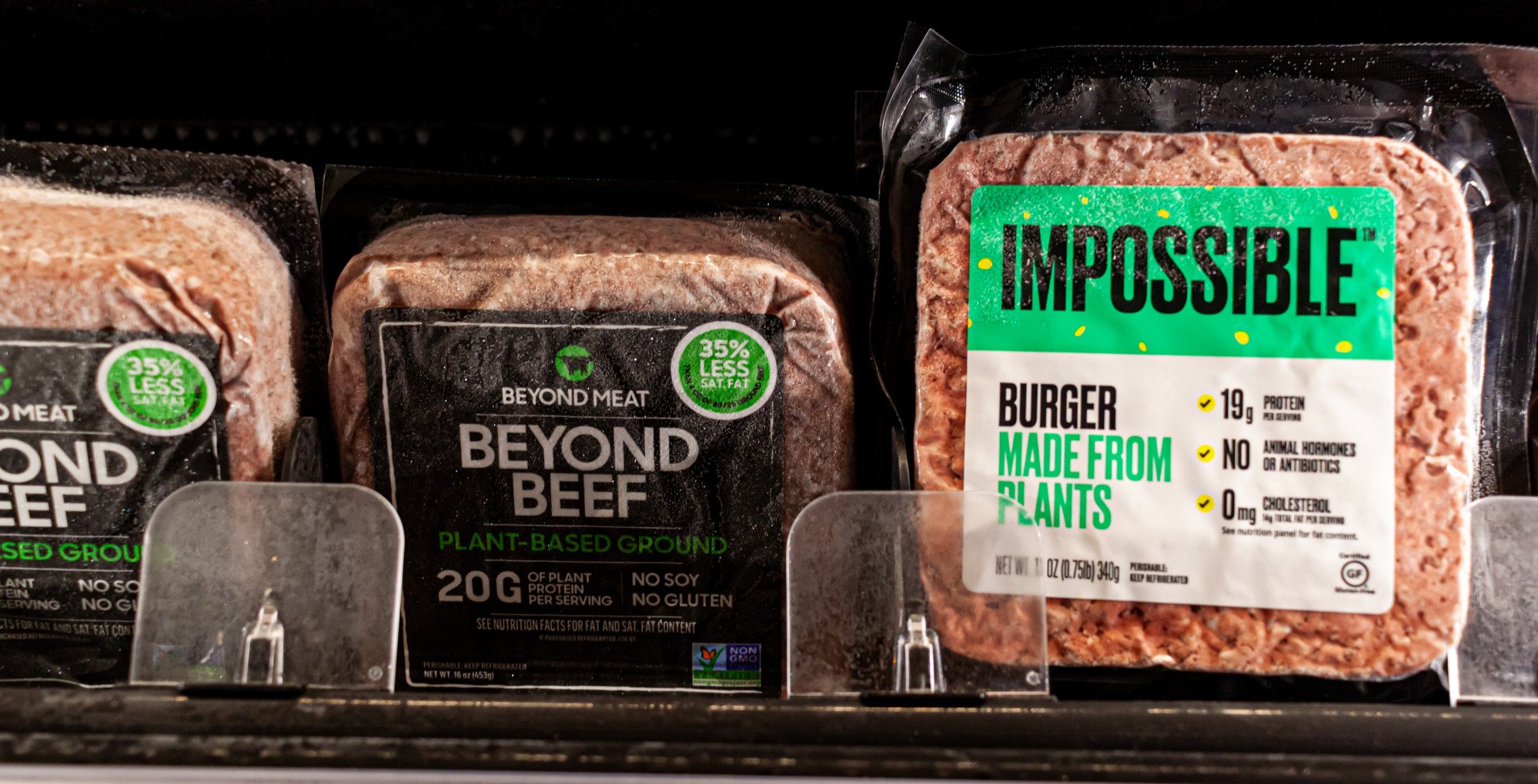
10 surprising ways a whole food, plant-based diet benefits health – including better sleep, less arthritis and joint pain, and longer life
- A whole food, plant-based diet can reduce the risk of cancer, diabetes, cardiovascular disease and Alzheimer’s disease, but it has other health advantages, too
- Eating more plant foods can help with a range of issues, including erectile dysfunction, dry skin, period cramps and joint pain, improve sleep and prolong life
January may see many of us take up the challenge of going vegan for the month – in an annual campaign known as Veganuary.
While cutting out animal products is certainly health-promoting, if you want to reap even more benefits of the diet, you may want to try eating only whole plant foods.
This means consuming more whole grains, legumes, fruit and vegetables, says Dr Anna Herby, a dietitian and nutrition education specialist at the Physicians Committee for Responsible Medicine in the United States.
Unlike a standard vegan diet, a whole food, plant-based diet avoids processed, convenience and higher-fat foods like meat alternatives and vegan cheese, for instance.

Here are 10 health benefits that may take you by surprise:
1. For men, lower risk of erectile dysfunction
Atherosclerosis, the thickening or hardening of the arteries, can reduce blood flow to the vessels around the penis and lead to difficulties with erections.
Can’t maintain an erection? Why experts say a heart attack could be next
“One notable feature of a plant-based diet is that it’s high in fibre, unsaturated fat and antioxidants while being low in saturated and trans fats. These elements can improve cardiovascular health and potentially alleviate impotence.”
A large study in 2013 found that increasing fruit and vegetable consumption by just one serving a day can lead to a 10 per cent reduction in the risk of developing erectile dysfunction.
The study showed those who ate more fruit and vegetables tended to have lower inflammation, indicated by lower levels of C-reactive protein in their blood samples. Saturated fat intake has been linked to increased levels of this protein.

2. For women, less period pain
High levels of oestrogen are also strongly associated with period cramps, and a high- fibre and low-fat, plant-based diet can help to lower oestrogen levels.

Herby says that fibre helps the body to get rid of extra oestrogen in stools, while reducing fat intake can help lower active oestrogen throughout the body.
3. Fewer hot flushes for menopausal women
“In a one-year study involving over 17,000 menopausal women, it was discovered that those who consumed higher quantities of fruit and vegetables experienced a noteworthy 20 per cent reduction in menopausal symptoms,” says Luk.
“Additionally, studies have indicated that the daily consumption of beans and legumes can delay the onset of menopause by approximately one year. This delay may be attributed to isoflavones, which are present in beans and have been associated with various health benefits.”
They are believed to improve cardiovascular issues, act as scavengers of free radicals that cause cellular damage, and reduce the risk of breast cancer.
How to ease menopause transition symptoms through diet, and what to avoid
They possess oestrogen-mimicking properties that help to alleviate symptoms associated with oestrogen deficiency in women, Luk adds.
“By incorporating isoflavone-rich foods like soybeans into the diet, women may experience relief from menopausal symptoms and potentially gain protection against certain health conditions.”
4. Minimises arthritis and joint pain
Rheumatoid arthritis (RA) can cause inflammation or painful swelling, affecting different parts of the body, including the joints.
Plant-based diets have been associated with potential benefits for people with RA, according to Luk.
A diet rich in vegetables, fruit and whole grains provides essential nutrients that may help alleviate inflammation and reduce RA-related pain.
How to relieve arthritis pain: weight loss, walking, swimming and physio
Carrying extra weight stresses the joints and leads to increased inflammation, and excess fat in the body releases chemicals that promote inflammation.
Being overweight can make it more challenging to achieve remission in RA, says Luk.
Following a healthy, plant-based diet can lead to weight loss, even without calorie counting or intense exercise. The fibre in the diet also keeps one full for longer, with fewer calories, Herby adds.

5. Maintains healthy skin
Plant-based diets are rich in various nutrients, including vitamins A, C, E and K, folic acid, and other beneficial compounds, says Luk.
“These nutrients play important roles in skin health by aiding in skin tissue repair, moisturising cells, maintaining skin moisture, and reducing the appearance of dry lines.”
Skin 101: ageing, acne, sweating, cancer – and best ways to protect it
6. Helps with hair and scalp health

7. Boosts a low mood
A plant-based diet is helpful in improving mood because of its high antioxidant and anti-inflammatory content, says Herby.

Reducing inflammation in the brain can be a way to significantly stabilise and improve mood. Also, a higher intake of healthy carbohydrates from eating more plants not only gives the brain steady fuel in the form of glucose; it also helps to increase levels of serotonin, a hormone that stabilises mood and boosts feelings of happiness and well-being.
8. Improves sleep quality
A study published in December 2023 in the European Journal of Clinical Nutrition found that people consuming plant-based foods had a lower risk of insomnia.
These results suggest that a plant-based diet may help improve sleep quality.
Herby says that eating pistachio nuts is a natural way to increase melatonin levels in the brain, so eating even as few as two pistachios before bedtime can help you fall asleep.
9. Lowers medical costs
“In doing so, medication needs are often reduced, as are medical procedures and doctor visits. Since fruit, vegetables, legumes, and whole grains are so much cheaper than medications, overall medical costs can be lower if one adopts this way of eating.”
Want to live longer? 10 diet secrets of people living longest and healthiest
10. Increases longevity
Because the root of many chronic diseases can be addressed through diet, following a plant-based diet can help lower one’s risk of living with disease or dying early from it, Herby says.

